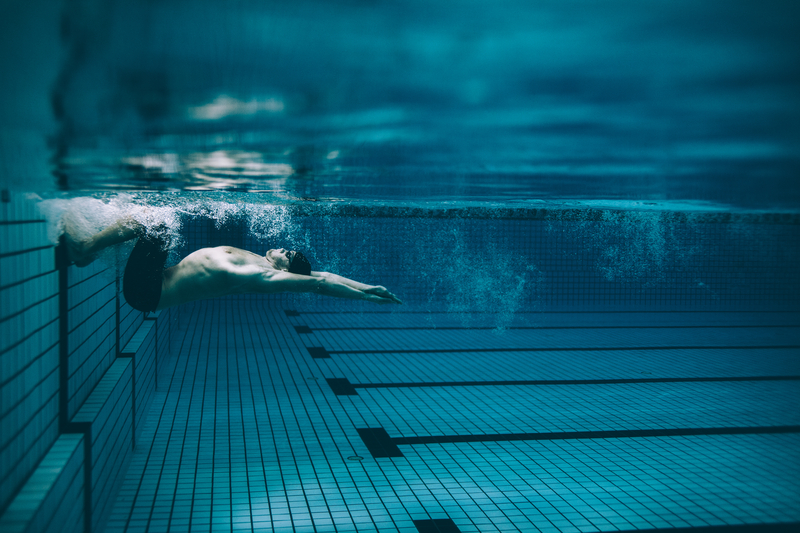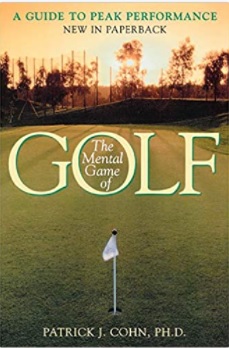Pop Quiz: What Are the Five Most Mentally Challenging Sports?

There's a peak-performer mindset for every activity you engage in, from sports to work performance and even to sexual performance. You just have to find it. Tweet

Highlights
Dr. Cleere: “Most swimmers fall into what I call the seven-day self-sabotage cycle...they are already stressing about their competition.”
“Golfers handle their perceived stress very similar to tennis players and we work on similar things: pre-round routines and pre-shot routines...”
“Baseball also has a lot of downtime—waiting to go to bat and waiting for the next batter.”
You were probably thinking, what are the five most mentally challenging sports? Not mentally challenging as in book-smarts. We mean challenging based on the number of places or moments when negative thoughts can pop up and enter the mind and ambush you.
To find out, we looked to Performance Coach Dr. Michelle Cleere for her thoughts on what, in all her years of working with athletes, she thought was most mentally challenging to the jocks.
‘It’s one thing to identify the most mentally challenging sport. It’s another to master the peak-performer mindset for every activity.’
She says it’s one thing to identify the most mentally challenging sport. It’s another to master the peak-performer mindset for every activity you engage in, from sports to work performance and even to sexual performance.
And different sports throw up different challenges. Take baseball, for example: “Not all team sports have as much downtime…unless an athlete is sitting on the bench,” she says. Meanwhile, “Like swimmers and gymnasts, tennis players also need a space and time to evaluate their performance so they can grow.”
And check out Dr. Patrick Cohn and his “Peak Performance Sports” if you want to learn more about achieving the mindset of a peak performer.
When it comes to sports, we’ve listed seven sports below, in alphabetical order. Can you guess which ones Dr. Cleere considers to be the top five most mentally challenging?

- Baseball
- Basketball
- Football
- Golf
- Gymnastics
- Swimming
- Tennis
Dr Cleere’s answers:
1 Swimming
“Most swimmers fall into what I call the seven-day self-sabotage cycle. Seven days before a meet, they are already doubting and stressing about their competition. You can imagine how big the nerves can get and can compound over and over each day. The good news is that swimmers can break this cycle and lessen the nerves so that on the day, they are present for the competition and ready to perform their best. To get here though, they have to minimize the nerves the night before with pre-meet swim starts, and in-between races with creative and personal routines. And then, they also need a productive way to evaluate each race and their overall performance to further grow and master their skills.”
2 Gymnastics
Gymnasts are very similar to swimmers. They fall prey to the seven-day self-sabotage cycle, so we work on very similar things in very similar areas to swimmers.
3 Tennis
Some tennis players struggle with self-sabotage and nerves a week before a tournament. The areas where most tennis players struggle with are before a match, pre-serve, and a way to reset, refocus, and let go of mistakes between each ball. Tennis players can also strengthen their control in these areas and, in turn, decrease anxiety and negativity, and increase confidence. Like swimmers and gymnasts, tennis players also need a space and time to evaluate their performance so they can grow.
4 Golf
Golfers handle their perceived stress very similar to tennis players and we work on similar things: pre-round routine and pre-shot routine, and evaluating their performance. But one, big difference where golfers struggle is a way to deal with unoccupied time between holes and each ball.
5 Baseball
Baseball? Baseball also has a lot of downtime—waiting to go to bat and waiting for the next batter. And pitchers who are waiting to take the mound have a tremendous amount of pressure and too much time to think. This downtime leaves room for doubt to creep in and take over. Not all team sports have as much downtime as baseball unless an athlete is sitting on the bench. The mental toughness baseball players require is a combination of all of the above: stopping the seven-day self-sabotage cycle, minimizing nerves (doubt) the night before and the morning of an event, developing a pre-batting routine, practicing ways to reset and refocus, letting go of mistakes between plays, and productive ways for them to evaluate their performance.”
More From Dr. Michelle Cleere




















